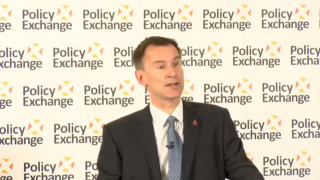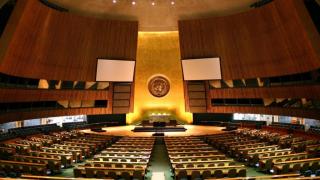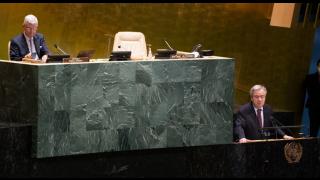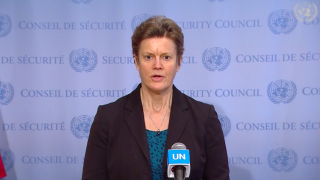
UNA-UK was very pleased to hear the Foreign Secretary Jeremy Hunt commit to action to prevent atrocities, as part of a speech at the Policy Exchange on the 31st of October which also included a renewed support for a "global Britain".
The Foreign Secretary said:
“The Foreign Affairs Select Committee did a report in September that challenged us asking whether we could actually do more within our budget on atrocity prevention, because there are times when far sighted action could potentially prevent some of the appalling things that do happen, so yes we are absolutely committed to doing that.”
We feel that this is a very positive step. UNA-UK have been campaigning with other NGOs for a coherent strategy for atrocity prevention. Inquiries into shortcomings in the UK response in Myanmar, and our campaign on Yemen have repeatedly stressed the need for this kind of approach. We made a number of submissions to the Parliamentary Inquiry Foreign Secretary Hunt referenced, and also inspired questions in the oral evidence sessions the committee held. UNA-UK's Head of Policy recently attended a three day workshop at Wilton Park, the Foreign and Commonwealth Office's international forum for strategic discussion, on atrocity prevention.
The Foreign Secretary also announced a surge in substantive support for his "Global Britain" agenda: announcing the creation of 1000 new diplomatic posts and the introduction of 20 new languages into the FCO's language school. UNA-UK have long argued that investment in diplomatic capacity is a crucial requirement for an effective foreign policy and therefore welcome this commitment.
We look forward to hearing more about the Foreign Secretary's announcement of an "invisible chain" for promoting democracy worldwide as this strategy is further defined. UNA-UK have ourselves argued that a principled, values driven foreign policy - with a specific focus on human rights and democracy - is a vital part of ensuring the UK remains globally relevant.
Nevertheless, at a time when tensions are rising due to real and perceived notions of the inequalities that our global system has created, and when the risk of exclusion drives so many of the problems we face, it is vital that we stress the universality of our international institutions, and work to expand the group of people for whom they work. If we instead work to exclude nations from these systems we risk increasing inequality and turning the excluded against multilateralism. Further, given that many democracies have found themselves complicit in recent years in ethically questionable actions, and in the context of the colonial and historic dynamics that underpin the UK's privileged position in international affairs, there is reason for caution when it comes to convening processes which could be perceived as a "club of the like-minded".
UNA-UK will watch the further development of the UK's foreign policy strategy with interest, and will continue to make the case for universality and multilateralism.
Photo: The Foreign Secretary delivering his speech on October 31st. Credit: Policy Exchange






